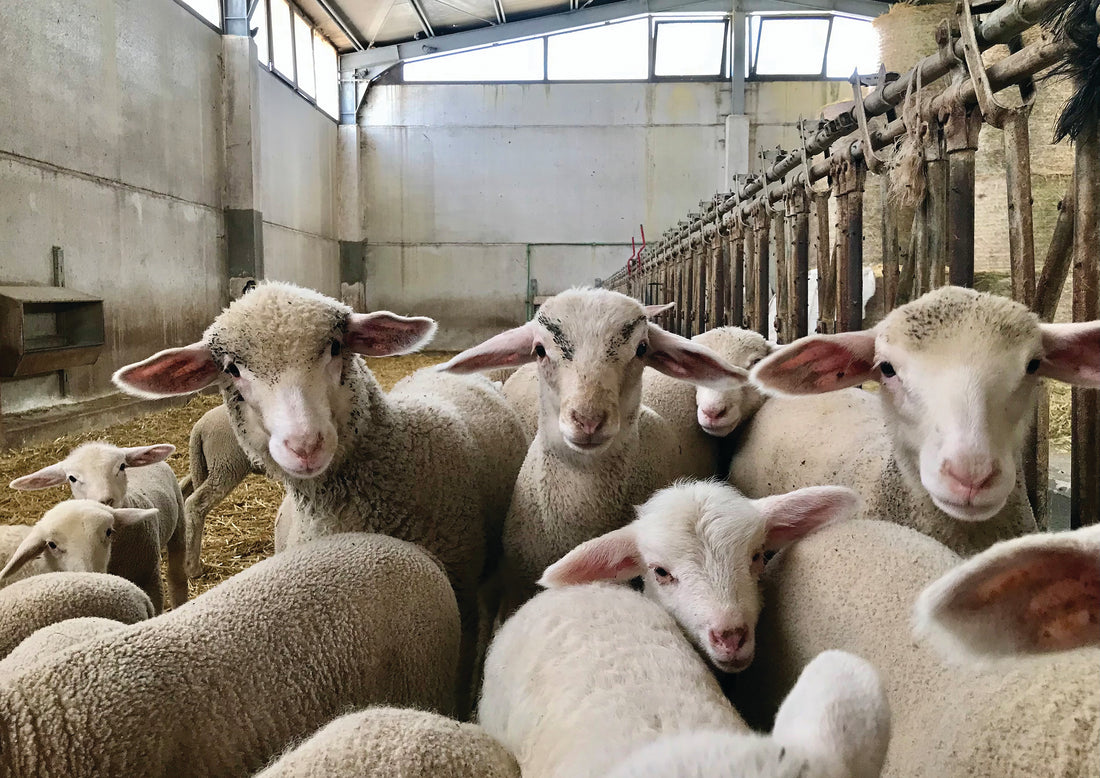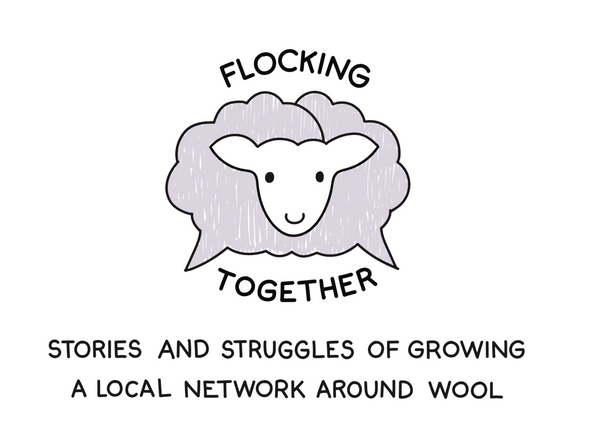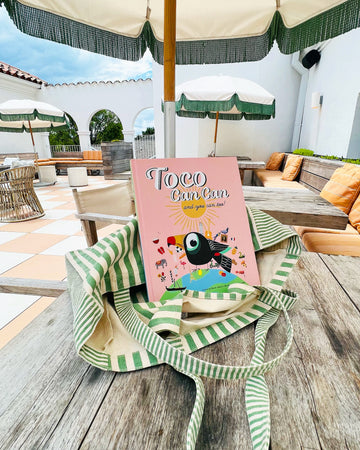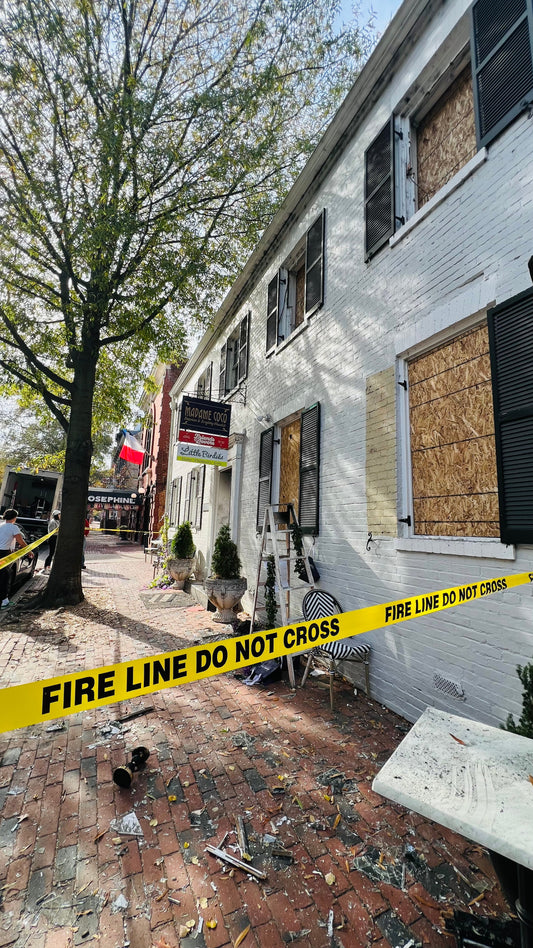
Flocking Together
We sat down with clothing designer, Darlene Sullivan to learn more about where our favorite cashmere and wool sweaters come from and how we can become more aware of how they are produced. She gives us her viewpoint on sustainability within the Italian wool industry and helps us understand the systemic, economic, ecological and social barriers of the global impact of wool production.

I have family from the Veneto region and have visited Italy throughout my life. When I was 20, I studied for a semester in Urbino, a beautiful town in Le Marche. After that experience, I had always wanted to return to live in Italy. In 2019, after years of working in the fashion industry in NYC, I decided to make a delayed dream come true by moving to pursue a master's degree in Eco-Social Design, concentrating my research on social and environmental sustainability in textile production.
"Flocking Together" is a master thesis project I did for the Libera Universita di Bolzano. It uses designerly storytelling to explore the complexities involved in reviving native wool production in Puglia and in Italy in general. The project takes a close look at the obstacles involved with transforming wool, which is often treated as “waste” in local sheep farming. Its aim is to raise awareness of the underlying systemic, economic, ecological, and social issues involved, but also shine a light on positive initiatives by small local and national realities that are successfully valorizing this resource. The project explores how both global and local issues affect community resources, economies, identities, and livelihoods in one micro-region, the Altamurgia in Puglia. “Flocking Together” aims to give voice to local actors and weave a narrative grounded in the recognition that we are all dependent on each other and the more-than-human world around us. Through the project, I also hope to provide an example of how storytelling can inspire transformation and act as an agent for eco-social change.
I've learned that everything is interconnected when thinking about sustainability and production. Everything starts with and in a place. What I mean is that geographical and environmental features, cultural and social context, as well as infrastructure and economics, all play a role. Whenever and wherever we produce, there is an underlying "glocal" aspect to it, which means the local and the global are intertwined. There are systemic, economic, ecological, and social issues involved, which all need to be addressed if we'd like to truly be sustainable. We cannot just choose a natural fiber or claim to be providing fair wages. There needs to be a transparent and holistic look at how we produce and the multifaceted issues that are involved within our society.

I think we all need to be held accountable for the choices that we make every day. I think it's also important to persuade those in positions of power to pass policies that will enable progress toward a more holistically sustainable system. But overall, I think it starts with education and creating awareness. The hope is that projects like "Flocking Together" can help communicate the need for systemic change and connect a larger network interested in developing strategies for a more sustainable future.
There are many ways we can reduce waste on a personal level, but I think, it's even more important to address this topic of waste on an industrial level. For instance, my project, "Flocking Together," discusses the byproduct of sheep farming and wool as a "special" waste. There are tons of wool waste being thrown away or burned due to there not being a centralized collection system. However, wool is only one example of a wasted resource. As a society, we need to create ways to utilize all of our resources better and implement more circular systems. By implementing a model of production and consumption, which involves sharing, reusing, repairing, and recycling existing materials, we can significantly reduce waste and improve the state of the environment.

To me, an ethical solution takes into consideration every aspect of society and the environment. An ethical solution is holistic in its approach, looking at the needs of human and more-than-human (animal and plant) lives. We cannot completely stop producing and consuming, but we can look at circular and fair solutions where we minimize our negative impact as much as possible and seek to continue to improve our trajectory over time.
Due to various factors, such as the exportation of labor, the rise of synthetic fibers, or the loss of skills and know-how over time, European wool production has declined drastically over the last few decades. This decline in production and know-how has caused wool collection facilities and wool scouring (washing) facilities to close. Today, there is no centralized collection of wool in Italy, and there are only 2 official washing facilities. This lack of infrastructure makes the production of wool a fractured and complex process that requires the transportation of materials and high costs for everyone in the supply chain.
It is difficult for small family farms in Puglia to compete on a global scale with the more advanced infrastructure and technology in other locations. There is also no functioning collection system for wool as well as a water scarcity issue which makes opening a washing facility complicated and unsustainable. Puglia is far from the two existing scouring facilities located in the North, making transportation to and from these locations unsustainable and costly. Sheep farming, however, is still practiced by many local farms for the production of meat and dairy products. Sheep shearing once or twice a year is essential for the animal's well-being. Otherwise, they are at risk of overheating, discomfort, and disease. Without a system in place to transform the fleece, farmers are forced to discard the wool by throwing it away or burning it. This process of burning wool can also be harmful to the environment, releasing toxins as it burns. The wool then becomes a wasted resource that could have otherwise been transformed for use in the apparel industry, utilized as fertilizer, or used as acoustic insulation.

The practice of sheep farming is important for the local economy and the preservation of cultural heritage, identity, and biodiversity. Maintaining Puglia's unique biodiversity is vital to its future. Since animal rearing is an essential way of life for rural farmers and herders in Italy and around the world, turning away from its practice negatively impacts community livelihoods. Furthermore, considering both the benefits of grazing sheep and the environmental impacts of the textile industry, wool as a raw material and natural resource offers an option that continues to support the evolutionary growth of the relationship between people, animals, and land. Sheep farming offers a healthy way to live in harmony with the land that feeds, clothes, and houses us.
My experience doing place-based research on the Murgia was an unforgettable experience. I began my research after meeting my project partner, Filippo Clemente, founder of Pecore Attive, a project concerned with the recovery and enhancement of Apulian indigenous wool. Filippo provided valuable guidance throughout my research process. During my stay on the Murgia, Filippo made himself readily available, providing endless knowledge and expertise on everything from regional culture and geography to supply chain limitations and the physical properties of native wool. He connected me with his extensive network of local professionals and stakeholders, as well as international artists and designers who were relevant to my research.
We began by taking short trips together around the city of Altamura, reading ethnographic books in Filippo’s studio, and visiting the historical center, the archeological museum of Altamura, and the local library. I walked through the surrounding countryside, enjoying its beautiful views, and I ate meals with Filippo’s friends and family. Together we visited much of the Murgia Plateau, including The Alta Murgia National Park, Italy’s first rural national park. I was fortunate to have an insider with a lot of expertise to guide and connect me with so many relevant participants. My research continued in this way, organically unfolding, and informed by the community itself. Through participatory workshops and one-on-one interviews with actors, the issues were revealed to be multifaceted, with many levels of complexity and interconnecting parts. Without Filippo's valuable input, expertise on the subject, and generosity, as well as the willing participation of the local community, my project would not have been possible.

When thinking "local," we need to consider particularities like geography, climate, demographics, culture, and infrastructure. To overcome challenges to local production, public and private partnerships, and collaborations need to develop to form a strong community. Associations and training programs could help train farmers and develop collection strategies. Policymakers need to support local initiatives more holistically. There needs to be more guidance around project development so that private funds can be secured before public funds run out. There also needs to be more promotion of local wool and wool products to diversify the current offering. Young designers need to be trained to use this special material and design beyond products geared toward tourism and traditional items like scarves and gloves. Brands that are striving to produce locally and sustainably need to form collaborations and larger networks to share expenses and collectively solve infrastructure and supply chain issues. The adoption of new technologies and the applications of systems from other industries could also provide potential solutions. One such example could be creating wool-washing facilities that use reclaimed water from irrigation systems already in place. The good news is that the solutions and the technology exist to solve many of these issues. We only need to find the right path to implement them and the right collaborators to join us in the process.
I believe it's time to break this cycle we are in and find new local, circular solutions to production. As a society, we have lost touch with how our clothing relates to the living landscape, the enormous distances our garments travel, and all the hands that help to create them. We need to transition away from the whims of fast fashion and shift production so that it prolongs the lifetime of each garment and meets the real needs of a community.
My vision would be to re-engage with local communities, re-invent local production, re-evaluate resources, and re-skill workers. I think it's vital for us to redirect our attention closer to home and the places in which we live. We should explore how the living landscape can play an important role in creating viable alternatives to our current system.
We, as designers and producers, can ensure our partnerships and value chains are genuinely fair and equitable by focusing on the revival of regional, place-based communities around wool along with other natural fibers. This concept and process seem idealistic, but some projects, initiatives, and organizations worldwide, such as "Fibershed" are already making strides in this direction. My vision is for a transformative change where local resources are valorized, biodiversity is preserved, and sustainable livelihoods thrive.

Meet Darlene
Darlene Da Ré Sulivan is a textile/surface designer and eco-social designer living and working in Italy and New York City. Beyond textile design, she has experience in domestic and overseas production for the fashion industry. She is the founder of Darlene Da Ré Design Studio, where she provides sustainability consulting for the fashion industry, textile/surface design services, design direction, and production management for various clients in both the US and Italy.
She is a dreamer who's always carved out her own path in life from NYC to Hawaii to Italy. She loves discovering new places and meeting new people that inspire and inform her work. Passionate about circular design and eco-social practices, she strives to find innovative ways to create with our world’s best interest and always a bit of fun in mind. Feel free to reach out if you’d like to explore a collaboration or just say hi at darlenedaredesignstudio@gmail.com!
www.darlenedaredesignstudio.com
No comments







0 comments